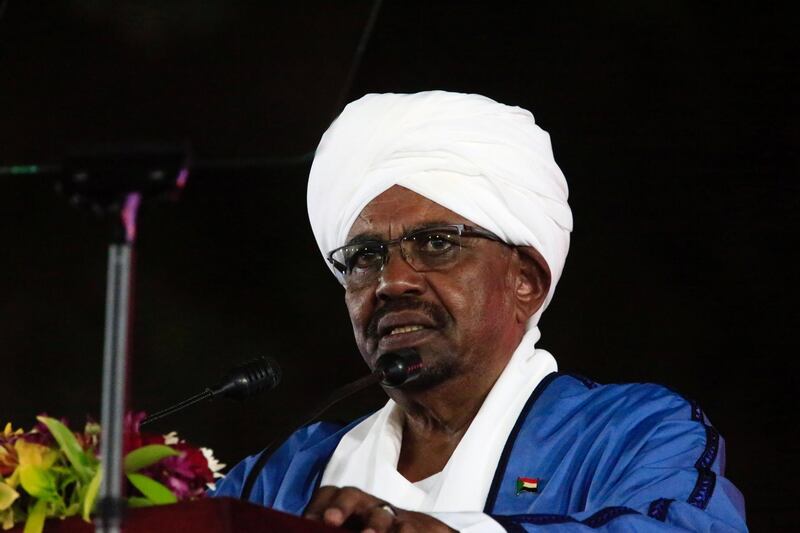Sudan, also known as North Sudan since South Sudan's independence in 2011, is struggling to control runaway inflation that has more than doubled in the space of a month, increasing the likelihood that North Sudan's president Omar Al Bashir will turn to the Arabian Gulf for help.
"Undoubtedly Al Bashir will look towards the Gulf States for emergency assistance, as his regime has done in the past," said Prof Patey.said Luke Patey, the lead senior research fellow on Africa at the Oxford Institute for Energy Studies.
The January inflation rate more than doubled the 25 per cent figure recorded in December, Central Statistics Office chief Karamallah Ali told a news conference in Khartoum, bringing with it unrest as consumers take to the street. “This rate of inflation is the highest in recent years,” Mr Ali said. “Even in 2013 when inflation was very high, it did not reach this level.”
In response the government has lowered the official exchange rate of the Sudanese pound to 30 to the dollar, from 18 previously. The black-market value of the pound is around 35 to the dollar currently, well below the previous all-time low of 27 pounds in November, according to Reuters.
In December, the IMF said fiscal policy should be tightened to "eliminate the monetisation of deficits, thus helping to reduce inflation and buttress macroeconomic stability”. It projected GDP growth of 3.25 per cent for 2017, down from 3.5 per cent in 2016.
Sudan’s external debt, which the IMF described as unsustainable, is expected to have reached $54.1 billion in 2017 and increase to $56.5bn in 2018.
Consumers are now reporting shortages of basic goods and empty shelves in stores. Karthoum-based blogger Tagreed Abdin @taggy said shops are having difficulty keeping well-stocked.
"Went to a well known supermarket in Khartoum, yesterday," Ms Abdin wrote. "Several empty shelves and cash transactions only. It's happening alright."
Banks are also limiting the amount of cash consumers can withdraw. It is not yet clear whether this is down to government intervention or some other issue. In other countries that have experienced hyperinflation, such as Venezuela and Zimbabwe, the authorities reduced money in circulation to try protect the currency's value.
_______________
Read more:
Sudan hit by nationwide electricity blackout during televised presidential speech
How 2018 will shape up for Egypt
_______________
While this pushed up the black market exchange rate of the local currency, it also accelerated the cost of non-discretionary goods such as basic foods.
"No cash - ATMs out of money and banks placing caps on withdrawals," Ms Abdin said. "One bank had 20,000 pound [Dh4,066] limit last week; a 2,000 pound cap today, people complain not worth waiting in line for equivalent of $57 at current exchange rate."
The basis for Sudan's troubles is the loss of 75 per cent of its foreign revenue when the oil-rich south became independent. This left the government of MrAl Bashir few options other than financial cutbacks and higher taxes.
"After tightening spending and raising taxes on key staples for nearly seven years now, it is only a matter of time before the bottom falls out," said Prof Patey.
Exports of gold and Sudan's remaining oil have not been enough to prop up its economy. Not helping has been Khartoum's place on the list of states sponsoring terrorism, until sanctions were lifted in October, which meant it was denied access to new debt, Mr Patey noted.
This leaves Mr Al Bashir with few options and he is likely to go to one of the few sources available to him – the Gulf.
.
However, even outside aid will have limited effect given the poor shape of Sudan's economy and the deepening resistance to Mr Al Bashir's government. The security crackdown currently underway that resulted in hundreds of arrests has done little to quell growing unrest.
"One begins to wonder just how long Al Bashir can hold on to power," Mr Patey said.
"His National Congress party has a knack for survival, but they must be looking over their shoulders now and thinking of how similar protests from worsening economic conditions brought down long-time leader Jaafar Nimeiri in 1985."





